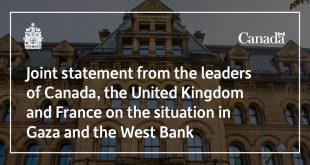Corona virus disease 2019 (COVID-19) hit the world quite unexpected during the latter part of 2019 and soon consumed the world. The world community still reeling. It’s a new disease; the world still collecting data as to how it spreads. It is believed to spread person-to-person between people who are in close contact (being within about 6 feet) with one another. Some people without symptoms may be able to spread the virus too.
The virus likely spreads primarily through saliva or mucus droplets produced when an infected person coughs, sneezes, or talks. This is somewhat like how the flu (influenza) and other infections such as the common cold spread. These droplets can land in the mouths or noses of people who are nearby or possibly be breathed in. Droplets can remain on surfaces such as countertops and doorknobs for hours to days.
COVID-19 reached Sri Lanka on 27 January 2020. The first reported case involving a Sri Lankan person outside the country was reported in Italy on 3 March 2020. The government of Sri Lanka mobilized all resources at its disposal in an attempt to stop the spread of the pandemic. Quarantine measures were implemented and authorities tracked down people who had come into contact with identified patients and ordered them to self-quarantine. Regardless Sri Lanka had reported to date 213,396 Corona virus cases and 1,844 deaths. Pretty high for a small country like Sri Lanka.
Amidst this gloomy backdrop came further gloom. Breaking news had this “Contaminants released from the wreckage of a container ship off the coast of Sri Lanka could be dragged thousands of kilometers by ocean currents, impacting wildlife and humans in far-reaching latitudes.” An unprecedented marine disaster with really bad consequences was just developing. If Covid was not enough and now this. 300 metric tons of oil transported by the MV X-Press Pearl from spilling out of the ship’s fire-damaged hull. Chemicals, tiny plastic pellets that were once onboard the 186-meter vessel already entering the ocean.
“Oil, chemicals and plastic pellets are probably the worst combination you can have,” said Delphine Lobelle, a postdoctoral researcher specializing in ocean plastics at Utrecht University in the Netherlands. “It’s really unfortunate that the ship was carrying so many harmful materials.” Pellets the size of a grain of rice can easily be mistaken for food by birds or fish, Lobelle said, but consuming them can be deadly. If the animals don’t die and are instead eaten by predators, the plastics can move up the food chain until they eventually reach humans. With time, the pellets break into even smaller pieces, known as micro plastics, which are even more difficult to detect and control.
To date no information of ground water contamination as a result of burial of Covid-19 victims had come to light as falsely alleged by the government but large stretches of Sri Lanka’s beautiful coastline is subject to relentless environmental degradation and the world watches with consternation the cascading contamination.
There was more bad news coming Sri Lanka’s way. Heavy rains lashed Sri Lanka triggering floods and landslides that killed at least 17 people and forced tens of thousands from their homes. Rivers on the island nation’s southern and western plains had overflowed inundating low-lying areas and forcing thousands into relief centers. Its estimated more than 270,000 people have been affected and about 100,000 buildings had lost power.
It did not end there. Now the threat of dengue looms high. Sri Lanka has reported 7,896 dengue cases so far this year with health authorities warning that the number could spike with the onset of the monsoon rains
Earlier on Muslims an integral part of the Sri Lankan community representing just over 10% of the population were prevented burial of their loved ones (victims of Covid-19) adducing absurd, baseless reasons, chief among them being ground water contamination, it stirred absolute horror in the minds of Muslims. It was unprecedented and wholly irreconcilable. No amount of rational discourse with authorities availed any substantial outcome.
Relevant world authorities clearly voiced the misdirection taken by the Sri Lankan government but to no avail. Sri Lanka made compulsory the cremation of all people who die from COVID-19, saying the virus in human remains could contaminate underground water. Muslims and non-Muslims alike protested against it, calling it unscientific and insensitive of Muslim religious beliefs. The United Nations also raised concerns with the government. The World Health Organization and Sri Lankan doctors’ groups have said COVID-19 victims can either be buried or cremated.
Kamil Mohamed (not his real name) spoke to this writer from the outskirts of Colombo. And he said “My uncle has died from Covid and his inevitable cremation has turned his house to a pandemonium ridden enclave. It’s not because of his death but because his body is going to be cremated. His three daughters and wife are inconsolable” he added.
In Islam, funeral rites are prescribed by divine law. Burying the dead is the method prescribed. Islamic belief holds that only Allah The Lord of the Worlds knows what is good or bad for us and that the body should be treated with the utmost respect in life and in death. Burning the dead is considered a form of mutilation, forbidden by Allah.
There is also a set series of events that burial rites are to follow, including bathing, shrouding, offering prayers and finally burial, with the head buried facing Mecca. These practices alone do not lend themselves to cremation.
And with all decent negotiations failing Muslims of Sri Lanka collectively raised their hands towards the heavens and lodged their complaint with their Lord Most High.
Human bodies do not contaminate water but hazardous chemical does.
Disclaimer :
Views expressed by writers in this section are their own and do not necessarily reflect World Forum for Sri Lankan Muslims (wfslm.org) point-of-view.
 World Forum for Sri Lankan Muslims Sri Lanka Muslims Forum
World Forum for Sri Lankan Muslims Sri Lanka Muslims Forum


